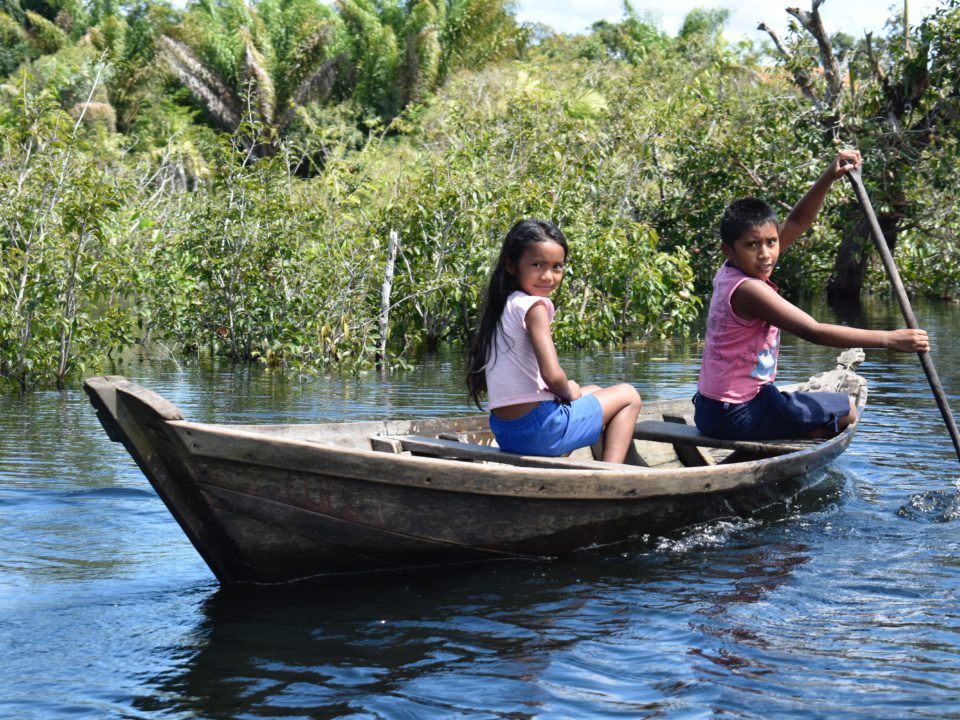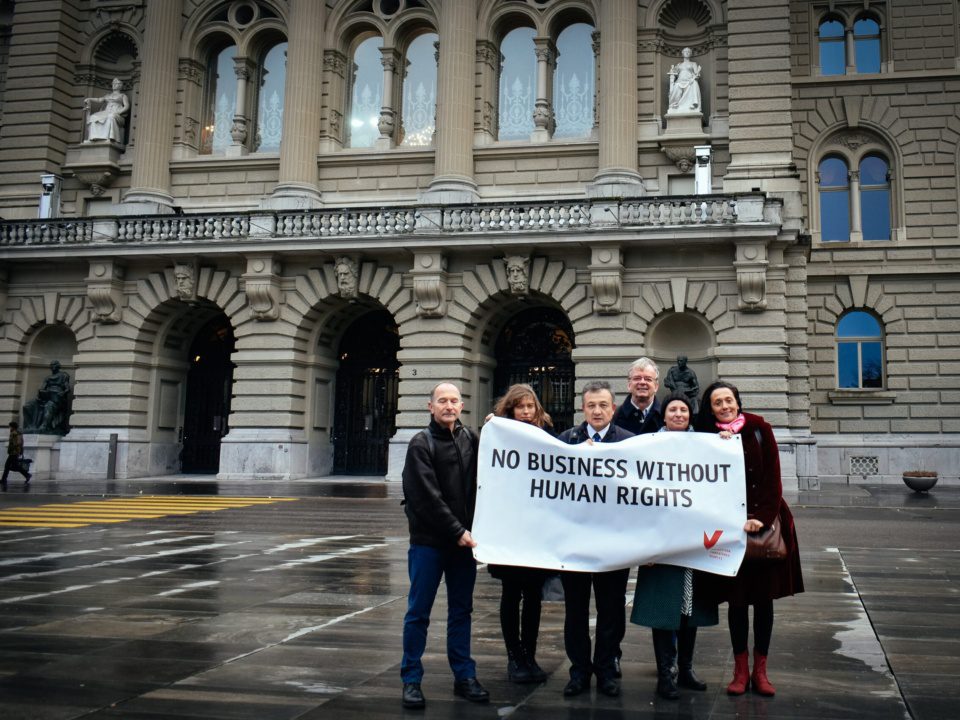29. September 2021
Press release
For the sake of cheap soya: railway and waterway threaten the Amazon
Burning forests and deforestation, displaced indigenous communities: these are the impacts of the production of soya and other agricultural products in the Brazilian Amazon. Now, a railway and a waterway are planned to transport the goods abroad even faster. This would result in massive damage to the environment and indigenous rights would be violated. Depending on the project managers, Swiss banks are also involved.
Huge infrastructure projects are planned in the Brazilian Amazon: the Tapajós water project, which consists of a waterway, seven large-scale dams and 29 small hydroelectric power plants, as well as the "Ferrogrão" railway line, which extends for approximately a thousand kilometres. They are intended to transport goods such as soya and beef abroad much faster and cheaper. According to one study, the water projects would flood an area of more than 780 km2, which is currently considered as protected land for indigenous communities. This corresponds to the area of the canton of Solothurn. Additionally, the railway project would require a displacement of the boundaries of the Jamanxim Nature Reserve. This would open up the previously protected area for economic use and cause massive environmental damage.
Violation of indigenous rights
In particular, the indigenous communities would be affected by the projects. "These projects will cause nothing but destruction for us. We will lose everything: our culture, our language, our customs”, states Juarez Munduruku. He is the leader of the Sawre Muybu village and would be directly affected by the planned water projects. Dredging the river will destroy the riverbed and fill in important tributaries, he fears. Fish, an important source of nutrition for the indigenous communities, would also be threatened. "And all this just to reduce the price of soya and to exploit the Amazon even more!" adds the village leader. However, the directly affected indigenous population has no say in the planning of the projects. This is stated in a report published today by the Society for Threatened Peoples (STP). This is in disregard for the rights of indigenous communities to free, prior and informed consent (FPIC).
An indigenous delegation appeals to Swiss financial institutions
The Ferrogrão railway line and the water projects are in the planning phase. Direct financing has therefore not yet been determined. However, it is well known which companies have shown an interest in the construction or operation of the projects. The STP's report initially discloses which financial institutions fund these potential participants. There are several Swiss banks among them. For example, UBS and Credit Suisse together extended loans worth almost 7 billion US dollars to several of the energy companies interested in building and/or operating the water projects. The Credit Suisse, Zürcher Kantonalbank, UBS and the Swiss development bank AKFED (Aga Khan Fund for Economic Development) jointly offered loans to the amount of 1.2 billion US dollars to the parties interested in the Ferrogrão railway line. This is added to the investments in both projects by the Swiss National Bank (SNB) and other Swiss companies, within the scope of a total of 6 billion US dollars.
Human rights activist Alessandra Munduruku is explicit regarding the responsibility of the financial institutions: "The banks are complicit in the death of the Amazon rainforest. Without them, there would be no railway, no waterways and no power plants". Alessandra Munduruku is currently visiting Switzerland, together with Juarez Munduruku, for discussions with the relevant Swiss companies. The two delegates appeal to the banks to assume their corporate responsibility and to condition their financing to the respect for human rights. "Now is the time to act before the damage is completed!", states Juarez Munduruku.
The STP supports the delegates in their concerns. "Swiss companies must respect the rights of the indigenous communities, otherwise there is a risk of massive reputational damage and financial costs", says Julia Büsser, campaign manager at the STP. The new report alerts financial institutions to the irreversible social and environmental damage the projects would cause even before they are implemented and appeals to the companies to act.
The indigenous communities and the STP are demanding immediate action from the financial institutions:
- Proactive action: In the current project phase, the financial institutions should exert influence on business partners and demand the FPIC process from the outset.
- Willingness to engage in dialogue: The financial institutions should avert possible damage by engaging in dialogue with affected communities and NGOs.
- Transparency: Transparency regarding their role and responsibility in the aforementioned infrastructure projects vis-à-vis the affected communities and the general public.
In the medium term, the indigenous communities and the STP demand from the financial institutions:
- An improved risk management: in addition to the financial risks, the companies should also include the social and environmental risks in the risk analysis (double materiality approach).
- The companies should include indicators on indigenous rights (especially FPIC) in the policies, risk management and monitoring processes of all business activities.
- The companies should introduce country and region-specific risk factors for Brazil and the Amazon.
- The companies should regularly monitor their business partners' compliance with FPIC. In the event of repeated violations, they shall terminate the business relationship by means of exit clauses.
The exploitation progresses
The planned infrastructure projects are part of the economic development of the Amazon rainforest, which has persisted for several decades. Most recently, the construction of the Transamazonian Highway and the Belo Monte dam aroused criticism. According to the STP's view, these facts are exemplary: to make infrastructure projects sustainable, it is imperative to consider not only the ecological, but also the social components.

